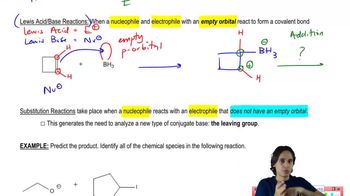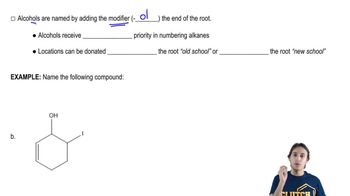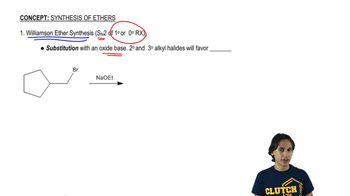Show how you would synthesize the following ethers in good yield from the indicated starting materials and any additional reagents needed.
(d) 1-methoxydecane from a decene


 Verified step by step guidance
Verified step by step guidance Verified video answer for a similar problem:
Verified video answer for a similar problem:



 0:10m
0:10mMaster Making Ethers - Intro with a bite sized video explanation from Johnny
Start learning